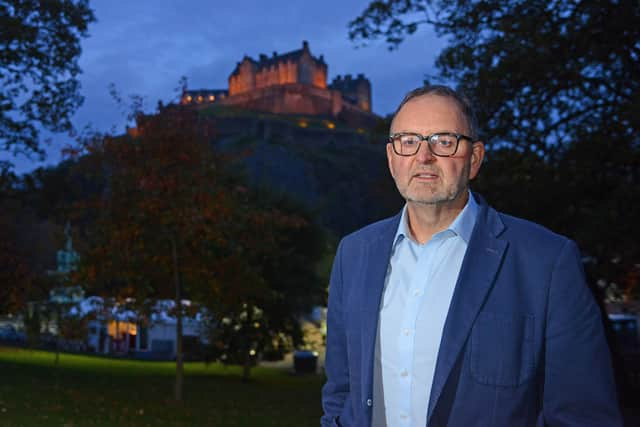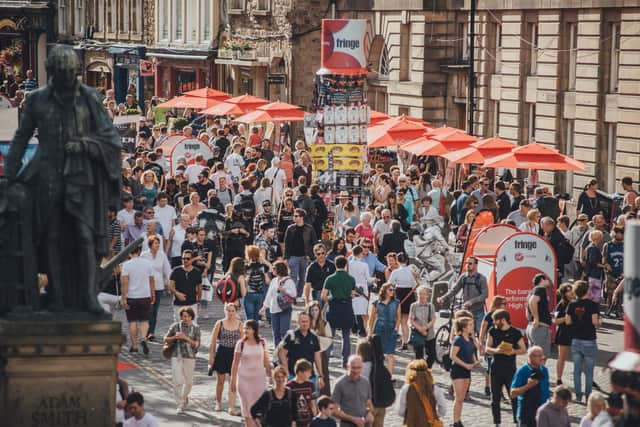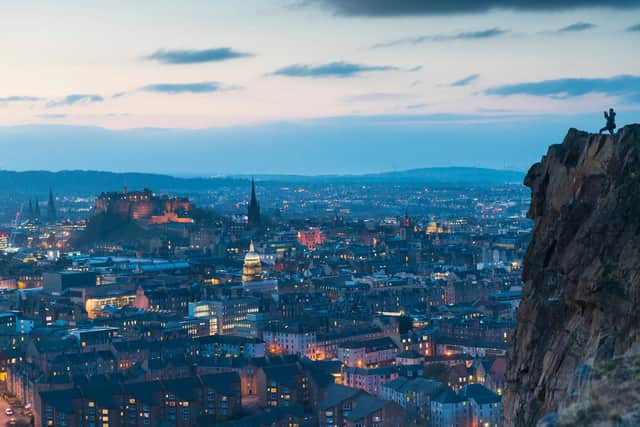Edinburgh tourism chief admits rethink is needed on how its festivals impact on the city


Donald Emslie, chair of the Edinburgh Tourism Action Group, said a better “balance” had to be found in future to ensure that some parts of the city do not “suffer” again during peak seasons.
And he suggested Edinburgh had to focus on “building forward better” rather than trying to rebuild the cultural tourism industry that reaped more than £300 million for the city every year.
Advertisement
Hide AdAdvertisement
Hide AdSpeaking during an online conference on the future of the festivals, Mr Emslie said a new strategy for the tourism industry would be a “clear departure” from a previous era which was focused on growing visitor numbers.
However he denied suggestions that Edinburgh had an “overtourism” problem – despite the Scottish being capital being named one of the world’s worst-affected cities in 2019.
The online conference, organised by the Cockburn Association heritage body, was staged a year after hundreds turned out at an angry public tackling growing concerns about the “commercialisation” of the city centre for events.
Mr Emslie said: “The tourism sector brings in about £2 billion to Edinburgh and goes towards making the city a vibrant, sought-after place for people to come here to live, work and invest in.
“But what the pandemic has given us is an opportunity to pause and rethink what needs to happen in the future. People talk about ‘building back better’ but I prefer ‘building forward better.’


“It does have to be better balanced. The industry needs to work much closer with the city council and the communities within the city about we can all enjoy the tourism product and welcome visitors in a much more managed and sustainable way.
“The original ambition of the festivals just after the Second World War was to bring the world together.
Advertisement
Hide AdAdvertisement
Hide Ad“Cultural tourism opens up Edinburgh, which is a relatively small city. We have to cherish that, because it adds a lot to the experience of living in the city. But it has to be nurtured and managed. It has to be different – there is no doubt about that.
“I don’t we do have overtourism in Edinburgh. There are several weeks of the year, during August, when certain areas of the city do suffer from overtourism. But the whole city doesn’t.”


Dr Jane Ali-Knight, professor in festival and event management at Edinburgh Napier University, told the conference: “The one thing that’s been evident to me, as a resident and festivalgoer, is how competely different the city is without that cultural offer.
"As a festival city without festivals it lacks any sort of vibrancy and is a very sad place. We’ve realised that we do need the festivals, but we also need a more balanced approach.
"Covid has pressed a pause button and given us an opportunity to completely rethink the festivals model.
“The festivals bring added vibrancy to the city, but we also need them to be more grassroots, more embedded with the local community and for the city to have more ownership of them.
"We don’t feel we have a voice in how the festivals are delivered. What we do need more than anything is leadership.”
A message from the Editor:
Thank you for reading this article. We're more reliant on your support than ever as the shift in consumer habits brought about by coronavirus impacts our advertisers.
If you haven't already, please consider supporting our trusted, fact-checked journalism by taking out a digital subscription.
Joy Yates
Editorial Director
Comments
Want to join the conversation? Please or to comment on this article.